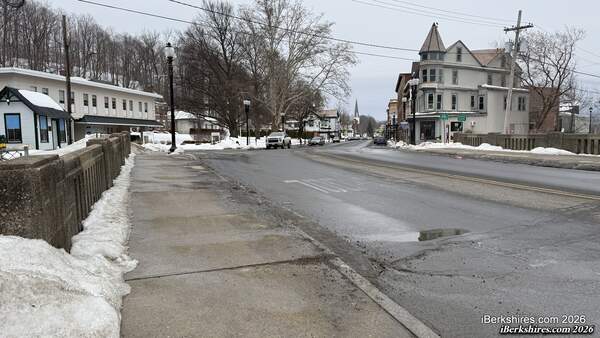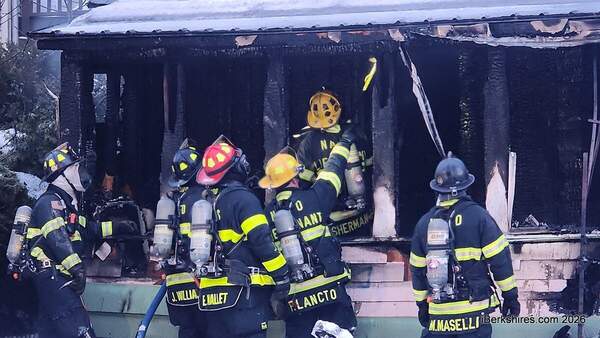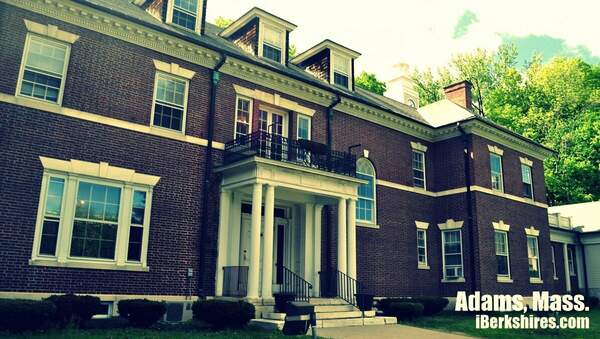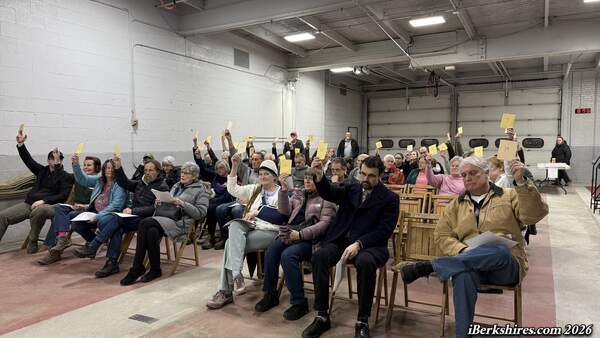North Berkshire Waste District Interested In Hydrogen Facility Project
ADAMS, Mass.— Members of the Northern Berkshire Solid Waste Management District (NBSWMD) were intrigued by a plan by Local Power to work towards community-wide decarbonization through a waste hydrogen facility in Western Massachusetts.
In a presentation on Jan. 11, Local Power President Paul Fenn told the district members that Local Power helps local governments set up community-wide decarbonization with a focus on localization "as a core strategy in an industry defined by centralized energy and capital sources."
He said the community choice aggregation firm helped usher in community choice power supply programs to many towns and cities in Berkshire County, including Williamstown, Dalton, Adams, and Sheffield, among others.
Through these programs, Local Power works on carbon reduction, and exploring innovative ways to address solid waste, as waste is a major cause of greenhouse gas.
Fenn proposed a new system municipalities can use that would process municipal solid waste at the local level, saving money and addressing inequity built into the current system of waste disposal.
Local Power is partnering with California-based Ways2H to reuse trash and non-recyclable plastic using an evolving technology that is already built and operated in Japan, China, India, and the United States.
They aim to detoxify existing landfill and sewage waste, produce hydrogen energy, add food waste to compost components, and convert municipal solid waste, such as kitchen and sewage waste and nonrecyclable materials into hydrogen and waste carbon dioxide into limestone.
The Was2H process handles toxic waste, like poly-fluoroalkyl (PFAS) substances, in ways that do not pollute the environment and end up in drinking water.
They aim to have the process conducted in Western Mass. while meeting or beating the current tipping fee. The facility would be privately financed so municipality capital is not required.
The municipalities' contribution to the privately owned facility would be as customers of the plant.
Throughout the presentation, Fenn demonstrated the current systems in place to address solid waste have a negative environmental, economic, and public health impact. He noted that with the closure of incinerators, waste energy plants, and landfills municipalities are forced to transport material on trains and haul them to other areas.
This can pollute the air and water and where the material is ultimately buried or incinerated typically impacts the lowest income and most vulnerable communities.
The process the waste-to-hydrogen facility would utilize would no longer release greenhouse gasses into the atmosphere, rather the carbon dioxide is contained in limestone.
The byproducts of the process both are usable, Fenn said: hydrogen as fuel and limestone in industrial applications. The private facility would be self-powered by utilizing the hydrogen it creates.
The only gas that's released is ambient nitrogen, Fenn said. There isn’t oxidation so nitrogen oxides are not produced from the system. The high heat from the process would destroy the "forever" chemicals.
"That same nitrogen is the one that we are breathing–ambient nitrogen," he said.
According to 2018 data, the United States generated 292.4 million tons on municipal solid waste, of which 23 percent, or 69 million tons, was recycled, 24.9 million tons was composted, only 8.5 percent and 68.5 percent was incinerated, landfilled, or incinerated as "waste to energy."
He also emphasized the increasing cost that area residents are facing for trash disposal, citing a 2022 price increase by Republic Services, which raised its price per ton from $80 to $97, a 21 percent hike in one year.
This project piqued the interest of the district members. However, they still felt there were a lot of unknowns surrounding it, including the cost, waste transportation methods, and how the facility would be maintained and operated.
Douglas McNally, Windsor representative, said it was clear to him that there is a need for facilities that create hydrogen because there aren’t any in the area.
McNally, who also serves on the Berkshire Regional Transit Authority (BRTA) said they are under pressure to “go green on the buses" and utilize hydrogen.
He said BRTA decided that "they're going to go hydrogen" but are struggling with how to obtain it. They are looking for means and would be interested in collaborating with someone to generate the hydrogen.
He added that locally large construction vehicles mostly use diesel and gas, and although batteries are getting more efficient, they are not going to be able to power a highway plow efficiently. He felt maybe hydrogen power could be the answer.
The district expressed interest in the effort and recommended that Local Power gain individual support from towns' Select Boards as well. This is a non-binding endorsement only in place to gauge interest.
Local Power has already presented to Williamstown, Cummington, Chesterfield, Goshen, and eight other locations. They have received signed letters of interest from the Worthington Select Board, Goshen Select Board, and Williamsburg Select Board.
Fenn said local Power has already met with the state Department of Environmental Protection to "assess the steps and time necessary to cite a waste to hydrogen facility."
Local Power and its partners would then present the plan back to the towns for a decision to proceed with the plan.
"The waste tonnage requires that towns aggregate together for this process," the presentation said.
Tags: landfill, NBSWD, pollution, trash,















